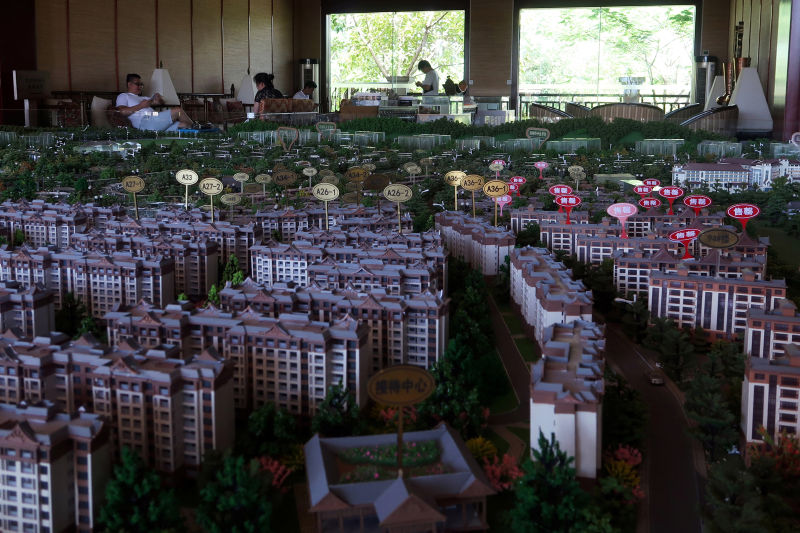China has the confidence, condition, and ability to keep economic growth at a reasonable level, a senior state planning official told the Xinhua News Agency.
The world’s second-largest economy faces multiple challenges heading into 2022, amid a property downturn and with strict Covid-19 curbs in some areas hurting consumer spending.
China should evaluate the likely impact of policies on growth before implementation, and “be prudent” in rolling out those with contractionary effects, Ning Jizhe, deputy head of the National Development and Reform Commission (NDRC), said in the interview that was published on Wednesday.
The country will make preparations for next year’s economic work in advance and “strive to stabilize economic operations in the first quarter, the first half and even the whole year”.
China issued 1.46 trillion yuan ($229.21 billion) in the 2022 advance quota for local government special bonds to help spur investment and support the economy, the finance ministry said last week.
Proactive Fiscal Policies
China will step up government spending, strengthen support to manufacturers and small companies, and ensure price stability, Ning added.
China will also work to stabilise industry supply chains, focus on solving chip shortage issues, and step up monitoring of commodity prices, said Ning, who is also the head of the National Bureau of Statistics.
To aid economic growth, China will continue to implement proactive fiscal policies, step up efforts to build an integral domestic market, while further shortening the foreign investment “negative list”, Xinhua quoted Ning as saying.
China uses a so-called negative list to ban or limit foreign investment in some industries, such as telecoms or resources.
China will also combine cross-cyclical and counter-cyclical measures to prevent wild economic volatility, Ning said.
- Reuters with additional editing by Jim Pollard
ALSO READ:
China Anti-Monopoly Regulator to Tackle New Economy Issues
China to Pass US as Top Economy in 2033, Not 2029: Think Tank
























